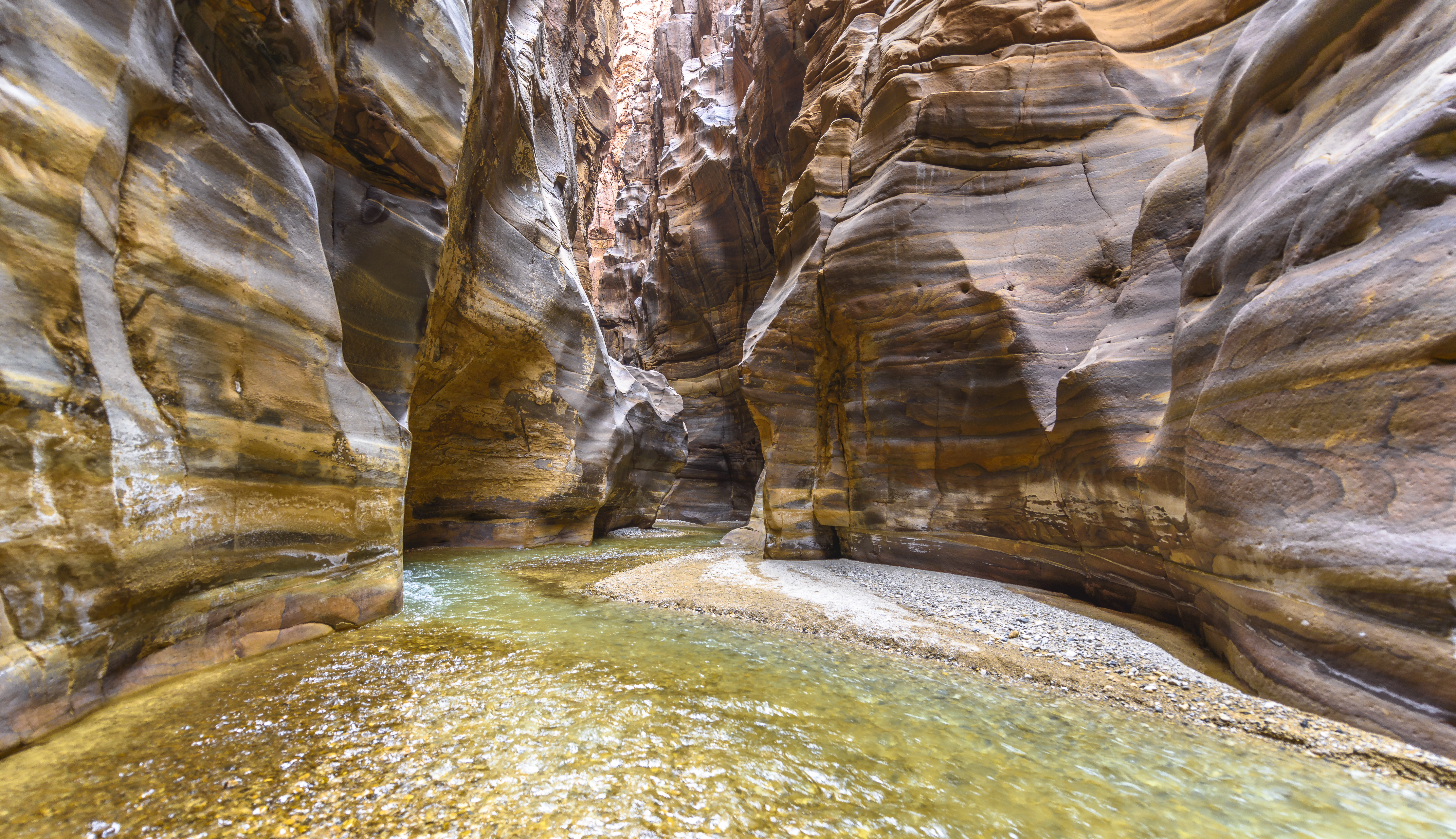In an ambitious step towards sustainable water management, the Royal Society for the Conservation of Nature (RSCN) has launched a National Committee for the Management of the Mujib River Basin (MRB). This initiative represents a significant milestone in addressing Jordan’s water scarcity challenges. This has resulted from the sustained efforts of the RSCN over the years to involve all stakeholders and achieve long-term sustainability and environmental balance in the MRB.
Jordan is one of the most water-scarce countries in the world. Its geographical location within the Mediterranean region makes it one of the countries most affected by natural factors, such as climate change, and human factors, such as forced migration. The Mujib Basin is considered one of the most significant basins in Jordan due to its location, which connects parts of four governorates extending from the highlands to the lowest point in the world, the Dead Sea.
Excessive pumping, desertification, flash flooding, and the increased demand for drinking water in the Mujib Basin region have increased interest in studying the best way to manage the basin, ensure the sustainability of water flow, and maintain the safety of people in the region.
To address these critical issues, the ‘Sustainable Water Storage and Distribution in The Mediterranean’ (OurMED) project, which started in March 2023 and was funded by PRIMA (Partnership for Research and Innovation in the Mediterranean Area), is RSCN’s latest project.
Led by Dr. Nashat Hamidan (nashat@rscn.org.jo), Director of the Conservation & Monitoring Centre at RSCN, and Eng. Qamar Al-Mimi (qamar.almimi@rscn.org.jo), GIS Officer at the Centre, the OurMED project seeks to innovate in sustainable water storage and distribution. It focuses on integrating ecosystem management at the river basin scale and involves extensive collaboration with local and international stakeholders.
The project’s primary goal is the development of dynamic simulation models that couple physical and socio-economic systems. These models aim to assess the direct and indirect benefits of water resources and drivers as part of the region’s larger socio-economic and socio-ecological systems. This approach marks a shift from mere participation to total involvement in the basin’s management, fostering a deeper engagement with all stakeholders.

In May 2023, the Jordanian Prime Minister agreed to form a national committee of thirteen members representing all institutions responsible for managing the MRB. This decision directly resulted from RSCN’s two-year campaign to involve all stakeholders in the basin’s sustainable management.
The MRB National Committee, headed by the Jordanian Ministry of Water and Irrigation (MWI), includes general secretaries of ministries, academics, and non-profit organizations representing the local community. The MWI will follow up on the committee’s work, hold its periodic meetings, and prepare the resulting outputs.
The formation of this national committee will help RSCN share the projects it is implementing within the basin, facilitate access to available information, and ensure the preservation of ecological values in the basin.

